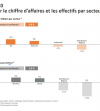EcomNews MED Vidéos
-

Covid19 : Quel est le rôle des organisations de support…
jeudi 4 juin 2020 -

Comment la France va-t-elle s’investir et aider l’Afrique ? Vidéo…
mardi 2 juin 2020 -

EBSOMED : Quels sont les résultats concrets de ce projet…
mardi 2 juin 2020



















Réagissez à cet article